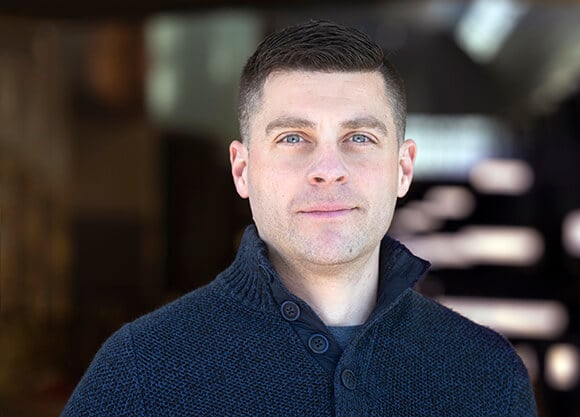
Law alumnus improves community access to mediation services, creates learning opportunities
October 12, 2022

October 12, 2022

Holt, JD ’06, brings experience as a mediator and founder of his own law firm, Holt Law LLC, to his work with the law school’s Center on Dispute Resolution. As executive director of both the Mediation Clinic and HMMP, Holt has utilized his expertise to improve community access to mediation services while creating student learning opportunities with real-world impact in Alternative Dispute Resolution (ADR), a longstanding specialty of Quinnipiac Law, most recently ranked 14th in the nation for ADR by U.S. News and World Report. Homelessness Mitigation Mediation Program partners include the Connecticut Department of Housing and its affiliated network of nonprofits.
Driven by a personal commitment to serve his community, Holt has been instrumental in developing new mediation clinic partnerships including the Children’s Law Center of Connecticut, a nonprofit agency providing guardian ad litem services for children of modest-means families.
The mediation clinic will take on cases assigned from the Children’s Law Center’s “Families in Transition” program, which provides high-conflict co-parenting mediation statewide for families unable to afford private mediation services.
In addition, Holt is actively pursuing collaborations with the Town of Hamden, the Hamden Police Department and the Connecticut Judicial Branch to expand student opportunities to engage in restorative justice practices, community dialogue, mediation and facilitation services.
“State employee mediators have a huge volume of work, and the demand has only grown after COVID,” said Holt. “I’m not aware of many towns or communities who are able to offer this type of facilitation as a community service that is also a meaningful educational opportunity for students.”
Holt directs the Homelessness Mitigation Mediation Program, one of the center’s most prominent projects.
In the summer of 2020, the Homelessness Mitigation Mediation Program was developed as a homelessness prevention initiative, funded by the state’s Department of Housing and supported by the law school’s Center on Dispute Resolution.
The Homelessness Mitigation Mediation Program leverages mediation and neutral facilitation to generate possible solutions with landlords and tenants impacted by COVID-19 related housing instability.
The Homelessness Mitigation Mediation Program collaborates with the Connecticut Department of Housing and an affiliated network of nonprofits focused on homelessness prevention. Holt and his collaborators are discussing next steps for the future of the program. The state of Connecticut has twice extended the program’s contract; Holt sees this extension as “a testament to the importance of ADR in addressing the state’s homelessness issues.”
The mediation clinic and Homelessness Mitigation Mediation Program are not only important community resources, but they also serve as pathways to further student development, Holt said. Students gain a deeper understanding of issues underlying conflict and the processes available to resolve those issues, he added.
“Serving real clients as mediators enhances students’ broader understanding of legal practice,” said Holt. “Through the practice of mediation, we can approach things more universally and with an enhanced human perspective. As attorneys, we can’t lose sight of other pathways or abandon the search for a better solution. The Alternative Dispute Resolution is not at odds with the law, it’s in addition to the law.”
Leveraging potential partnerships with local and state entities such as the judicial branch, Holt hopes to strengthen pro bono community mediation services in Connecticut while providing students with opportunities to hone their mediation and facilitation skills.
“We want the next generation of lawyers to understand that while litigation and the work of courts represent critical elements in any understanding of the law, being trained in alternative dispute resolution provides another pathway to serve clients while preserving their rights,” said Holt. “We have allies in social work and a wealth of experience in other professions to draw upon in the realm of legal practice that is complementary to our work. Our goal is to provide students with a solid foundation of practice-oriented skills that they can immediately apply to their work outside of law school."
Quinnipiac Today is your source for what's happening throughout #BobcatNation. Sign up for our weekly email newsletter to be among the first to know about news, events and members of our Bobcat family who are making a positive difference in our world.
Sign Up Now